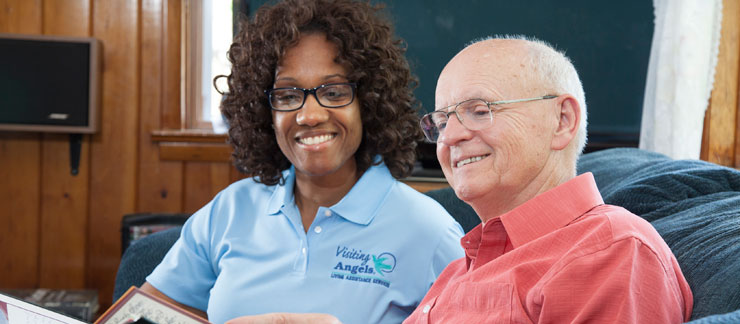
Senior Home Care: Physical vs. Mental Aging
As we grow older, our minds and bodies often age at different rates. Some of us slow down physically many years before we lose any of our mental quickness. Others stay spry well into old age but start to lose their memory well before their peers. The distinction between physical and mental aging can be an issue for friends and family of older adults. It’s also a significant concern in the world of senior home care.
How we distinguish between physical and mental aging has a big effect on the way we treat our older loved ones. If we confuse symptoms of physical decline as signs of cognitive aging (or vice versa), we can inflict a lot of unintentional damage. On the one hand, we might underestimate our loved ones’ abilities, treating them as less-than-capable adults. On the other, we might miss symptoms of a serious problem, like early-stage Alzheimer’s.
An understanding of this distinction is equally important for senior home care providers. Caregivers who don’t fully understand the difference between physical and mental decline are liable to provide their clients with substandard care. Meanwhile, caregivers who recognize the difference between aging bodies and aging minds are able to personalize care according to their clients’ needs.
Knowledgeable caregivers can also serve as a resource for families, providing advice and guidance about age-related concerns and challenges. This way, families are less likely to confuse signs of physical and cognitive decline, making it easier to care for their loved one.
Different Types of Aging = Different Types of Senior Home Care
In the senior home care industry, there’s a big distinction between physical aging and mental aging. While interrelated, these two types of aging often take place at different speeds. If someone is going through severe physical decline, it doesn’t mean that they’re also experiencing cognitive decline. Likewise, if someone is declining mentally, they might remain physically healthy.
This distinction is important for care providers because different types of aging require different types of senior home care. Confusing physical and mental aging can lead caregivers to provide the wrong type of care.
To illustrate, we’ll look at a couple of hypothetical examples...
Example 1:
Judy is a 72-year-old woman. Two years ago, her husband passed away, and Judy has lived by herself ever since. Recently, joint and back problems have made it impossible for Judy to get around without a walker. What’s more, she’s no longer able to perform simple chores and errands.
Given Judy’s physical state, many people would assume that she’s also experiencing cognitive decline. But thankfully, Judy’s family hired an experienced senior home care agency to provide her with care.
Judy’s caregiver not only provides physical assistance but also recognizes that Judy is as mentally active as ever. During visits, Judy’s caregiver provides her with stimulation by playing cards with her, helping her browse the internet, and engaging in thoughtful conversation.
Example 2:
Mark is a 62-year-old man. Recently, Mark has shown signs of early/mid-stage Alzheimer’s. More and more things are slipping his mind, and he’s starting to mix up words and forget people’s names. Occasionally, he gets confused by time and place.
An avid outdoorsman, Mark has enjoyed long walks outdoors and activities like birdwatching for much of his life. Yet Mark’s family worries that physical activity in increasingly unsafe for him.
Luckily, Mark’s senior home care provider is experienced at providing Alzheimer’s home care. Mark’s caregiver sees that he’s still physically fit and gets joy from these activities. After discussions with Mark’s family, Mark’s caregiver starts accompanying him for outside activities, giving Mark a joyful outlet that he doesn’t have at home.
In both of these cases, a senior home care provider is able to spot the difference between physical and mental aging. Having done so, they adapt their care services to the care recipient’s needs, greatly improving quality of care.
Mistaken Assumptions More Common Than You’d Expect
While you might think that cases like these are rare, mistaken assumptions about aging are more common than you’d expect.
Compare the way people approach a 30-year-old in a wheelchair to an 80-year-old in the same situation. While most people will engage with the 30-year-old as an equal, a surprising number will talk to the 80-year-old as if they’re speaking to a child. This can be a deeply humiliating and alienating experience for seniors, especially those who are cognitively younger than their peers.
For another example, look at the way that many people treat individuals suffering from dementia. A lot of people assume that individuals with mid-stage or late-stage dementia are incapable of simple activities. Yet many of these individuals remain skilled in activities like painting, gardening, or baking, even as they lose cognitive function. What’s more, these activities can prove sources of great joy for those with dementia.
Do you have an elderly loved one in need of senior home care? Contact your local Visiting Angels office today to schedule a free senior home care consultation.


